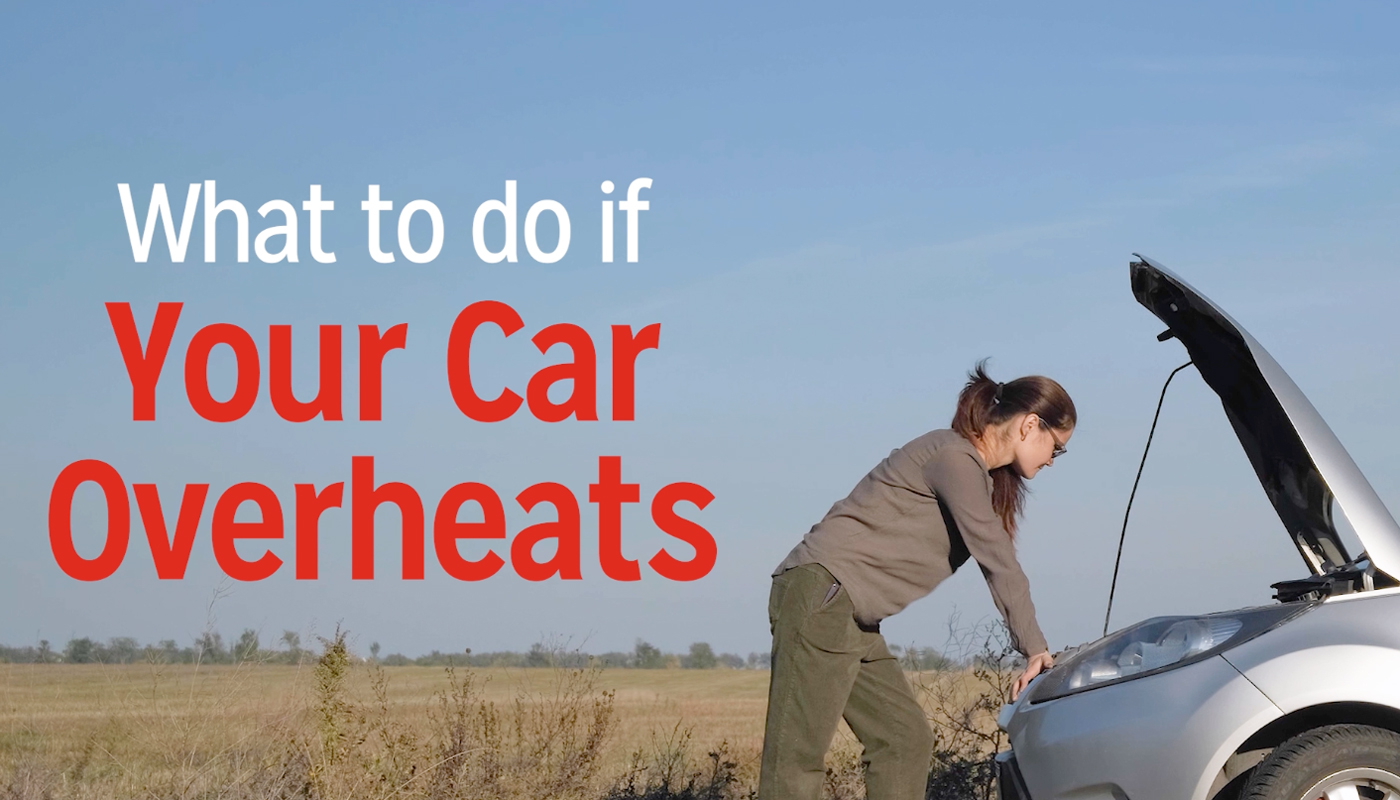To ensure you receive the best service possible,
please enter your zip code below:

Car care
AAA Members can receive a free vehicle maintenance inspection upon request with any paid service at a nearby AAA-owned Car Care center or AAA Approved Auto Repair facility, a 36-month/36,000-mile guarantee on repairs at AAA-owned Car Care locations, and a 24-month/24,000-mile warranty at AAA Approved Auto Repair facilities. Members also receive a 10% discount off repair labor (save up to $75).
A little steam coming from under your car’s hood can quickly cause a lot of worry. Along with the steam, you might see your temperature warning light glowing red, hear unfamiliar knocking sounds, or even notice a burning smell from the engine.
But what should you do when you first spot rising steam or smoke? And can you prevent serious damage to your car? Don’t worry—here, we’ll break down some common causes of engine overheating and guide you through the immediate steps to help keep you safe and protect your vehicle.
“Why is my car overheating?” is a frequently asked question—one with several possible answers and a host of remedies, so let’s dive in.

One of the most common causes of an overheating engine is low coolant levels. A special solution that absorbs heat from the engine in both hot and cold conditions, coolant is what regulates engine temperature.
When there’s not enough coolant due to a leak in the cooling system or ordinary evaporation, your car is very likely to overheat. If coolant hoses are clogged, cracked or leaking, this too can contribute to overheating.
Be sure to check your coolant levels regularly and before long commutes. Have your cooling system routinely serviced and top off with coolant when necessary to avoid overheating.
Your car’s thermostat is a small valve that regulates the flow of coolant to keep your engine at the right temperature. Under normal conditions, the thermostat triggers a spring that opens the valve when the engine reaches a specific temperature; the valve closes when the engine is cooled. But a failing thermostat will not open or close properly and will prevent coolant from circulating. The result? Overheating.
Typically, replacement of the thermostat is required to restore coolant flow. The good news—thermostat replacement is a relatively simple repair that can be performed by most shops in less than a few hours.

If your radiator becomes clogged or damaged by dust, rust or debris, coolant flow will be restricted, and overheating is likely to occur. After all, it’s the radiator that transfers heat from your car’s coolant to the outside air. But a cracked radiator cap, a leaky radiator hose or a broken radiator fan could also cause your car to overheat.
Regular coolant changes can prevent some of these issues from occurring. If a damaged radiator is causing your overheating, a mechanic can perform a coolant flush to potentially remove any debris, but if the damage exceeds basic clogs, radiator replacement may be necessary.
As the name implies, a water pump helps circulate water and coolant through your car’s engine. But a malfunctioning water pump stops the flow of water, which easily leads to overheating.
Many times, cracks due to aging are the reason for a malfunctioning water pump. On average, water pumps last between 60,000 to 100,000 miles. It’s generally not recommended to drive a car with a leaking water pump to prevent engine damage.

A head gasket plays a vital role in your car’s cooling system, channeling coolant and creating a seal between the engine block and head. Unfortunately, head gaskets can fail in several different ways, and once they’re blown, overheating happens quickly; the damage can be catastrophic.
The best course of action for a blown head gasket is replacement. Since this is such a costly repair, many people opt to purchase a new or different car, especially if the overall condition of the vehicle with the blown head gasket is poor or if the car has declined significantly in value.

Your car’s moving parts are lubricated by engine oil; this reduces friction and heat buildup.
When oil levels are too low, components rub together and can cause overheating. Check your oil level immediately if your oil indicator or check engine lights come on or if you observe a burning smell.
If you suspect low oil is causing overheating, pull over and check your oil level with the use of a dipstick. If a top-off is necessary, allow the engine to cool before you address the issue.
The serpentine belt of your car helps keep your A/C, power-steering pump, alternator and water pump functioning normally. When this belt begins to fail or deteriorate, your engine can overheat.
If you’re experiencing overheating and suspect a loose or damaged serpentine belt, it’s crucial to have the belt inspected and replaced by a reputable mechanic. Normally, routine maintenance at qualified service centers includes serpentine belt inspection and replacement, as needed.

One of the first things you should do if you notice steam coming from the engine or your temperature gauge starts to rise is turn off the air conditioning and pull off the road safely. If you continue to drive, severe damage can result.
Once parked, turn off the engine but wait at least 30 minutes before opening the hood to prevent burns. You can use this time to alert loved ones to your location and situation.
Once the engine has cooled, check the coolant levels and inspect your car for leaks (e.g., green, orange, yellow, blue or pink fluid that may have a sweet smell). If the coolant is low, you can add a mixture of half coolant and half water to the radiator before restarting your car (it’s a good idea to keep these items on hand).
Closely monitor your temperature gauge after restart, and if the issue persists or if you can’t safely restart your car, call for roadside assistance or a tow truck.
If your car overheats, AAA Roadside Assistance is just a call or click away. We'll tow you to the closest auto repair facility, where you can use your AAA Membership to save at least 10 percent on labor costs on any coolant system repair. Our AAA-owned Car Care Centers and AAA Approved Auto Repair facilities are staffed by certified technicians, so you can rest assured that your car will be repaired correctly and you’ll be treated fairly.
A. Overheating can be caused by low coolant levels, a faulty thermostat, a damaged radiator or cooling fan, a broken water pump, a blown head gasket or low engine oil. These issues disrupt the cooling system and cause excessive heat.
A. Safely pull over, turn off the air conditioning, and allow the engine to cool for at least 30 minutes before checking coolant levels or inspecting for leaks. Do not drive further if the issue persists; instead, seek professional assistance.
A. No, driving with these issues can cause severe engine damage. It's essential to have the car inspected and repaired promptly by a professional.
A. Regular maintenance such as checking coolant and oil levels, replacing worn-out components, inspecting the radiator, and routine professional servicing can help prevent overheating.
AAA to the rescue
Get help if you find yourself stranded on the side of the road. AAA Members can use the AAA Mobile app to call Roadside Assistance.